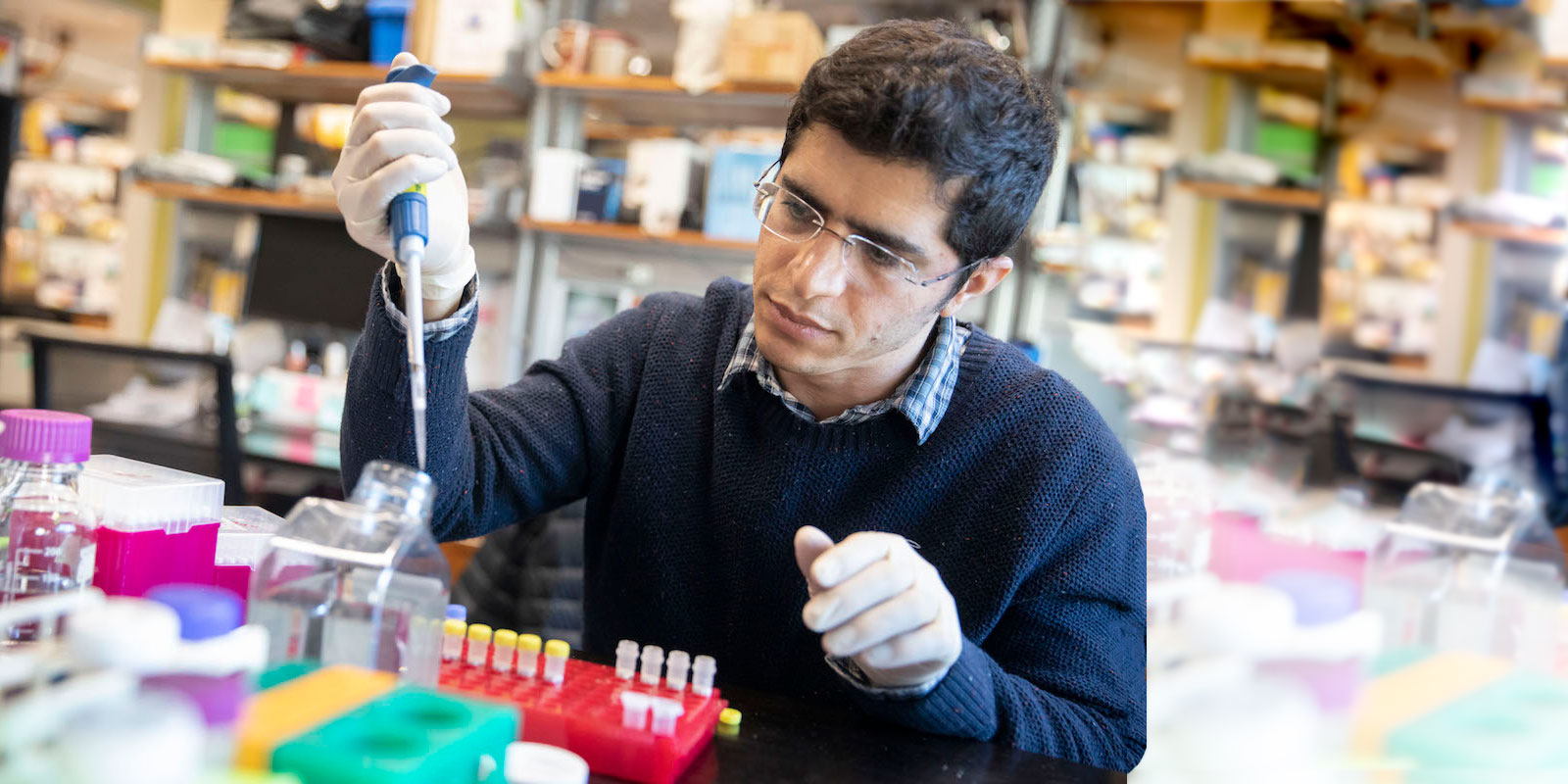Clinical and Translational Investigation Thesis Preparation
During the course, learners work with their mentors on two thematically linked research projects, which form the basis for two first-author publications, or a body of work. The Clinical and Translational Investigation Thesis Preparation course provides guidance on topics critical to the preparation and presentation of the written and oral forms of the thesis defense. Topics include a review of analytic strategies for qualitative and quantitative data, presenting skills for qualitative and quantitative data, writing an academic paper, writing an op-ed (opinion) piece for the popular press, and tips on writing and grammar. Weekly writing advising allows students to receive continuous feedback on their thesis composition.
Clinical Data Science: Design and Analytics I
This course introduces methods for generating and analyzing clinical research data by integrating epidemiology, biostatistics, and machine learning. It consists of three components that correspond to the three main objectives of clinical research: description, prediction, and causal inference. The descriptive component introduces different data types and study designs, summary measures (including frequency and occurrence measures), and statistical inference (hypothesis testing and confidence intervals). The predictive component introduces association measures, regression (linear as well as logistic), and other learning algorithms with applications to screening and clinical classification. The causal component introduces a causal inference (counter-factual) framework via randomized clinical trials, which covers survival analyses, sample size calculation, biases, and effect heterogeneity. The course emphasizes critical thinking and practical applications, through assignments based on medical journal articles and weekly case studies. All methods are taught along with STATA and R software for implementation.
Leadership and Teamwork
This course will examine the different aspects of working with, managing, and leading a team. Lectures will discuss the skills and techniques that are needed to manage a talented group of people effectively, pilot successful collaborations within and outside a group, navigate the complexities of the institution, and manage the inevitable conflicts that arise in a high-stakes environment.
Ethics and the IRB (Institutional Review Board)
This course will examine the regulatory and ethical oversight of the history and evolution of ethical research codes and regulations. The role and responsibility of physicians as investigators will be discussed, and information about the preparation of research protocol applications and informed consent documents for clinical research will be provided. The course also will review key ethical challenges in patient-oriented research, including recruitment, issues related to vulnerable populations, and current topics such as biobanking and social media use. The curriculum also includes the importance of considering the perspectives of subjects and patients in clinical research. Through lectures on clinicaltrials.gov and data sharing, students will learn about their regulatory and ethical responsibilities. The course includes both didactic and group work to emphasize critical thinking and practical application of ethical considerations while developing and implementing patient-oriented research.
Genetic Epidemiology
The goal of this course is to provide clinical researchers with the skills to address opportunities to incorporate genetic studies to answer specific research questions, understand basic genotyping techniques as well as the basics of genetic study design and analysis, identify and use publicly available databases for genetic research, and understand the principles of ethical conduct in genetic research.
Mentored Research Experience
During the mentored research experience, each student will have the opportunity to take the lead on clinical research projects in their areas of interest. Each student will work in a Harvard-based laboratory, under the direct supervision of a primary mentor, and will complete a thesis at the end of the program. This requirement serves two purposes: to highlight the importance of publishing high-quality research in peer-reviewed academic journals and to foster excellence in scientific communication. Additional guidance and oversight are provided to each student by a thesis committee, which consists of the student, the primary mentor, one external member (i.e., someone who is not in the student’s primary laboratory and who is not directly involved in the student’s research) and a program representative.
Clinical Investigation Curriculum
Clinical Data Science: Design and Analytics II
This course will extend the topics introduced in Design and Analytics I for each of the three goals of clinical research: description, prediction, and causal inference. The description sessions discuss data wrangling, data visualization, and unsupervised learning with a focus on clustering. The prediction sessions discuss the building and evaluation of predictive models via regression and other learning algorithms. The causal inference sessions discuss the advanced design of randomized clinical trials (factorial, non-inferiority, adaptive, crossover, and cluster-randomized clinical trials) and evidence synthesis using meta-analysis.
Clinical Data Science: Comparative Effectiveness Research I
This course will introduce causal inference methodology when randomized clinical trials are not feasible. The course focuses on the use of epidemiologic studies, electronic health records, and other big data sources for comparative effectiveness and safety research. Key concepts of bias, such as confounding, selection bias, and measurement bias, are described via causal diagrams. Methods for confounding adjustment—including stratification, outcome regression, propensity scores, matching, and standardization—are introduced along with an emphasis on formulating well-defined questions in clinical research.
Clinical Data Science: Comparative Effectiveness Research II
This course will extend the topics introduced in Comparative Effectiveness Research I. The course covers efficient epidemiologic designs such as case control, case cohort, and case crossover. It also dives into advanced methods for confounding adjustment (inverse probability weighting and parametric g-formula) for the comparison of sustained treatment strategies and instrumental variable estimation. The course also covers techniques for the secondary analysis of randomized clinical trials in the presence of deviations from protocol.
Drug Development, Safety, and Translational Pharmacology
This course will include topics such as: How Are Drugs Discovered and Developed, Case Study of the Pre-Clinical Stages of Drug Development, Moving a Compound Through the Drug Development Process, and Good Manufacturing Practices—A Global Perspective and Overview of Diagnostic Device Development.
Clinical Trials
The goals of this yearlong series, comprising two semester-long courses, are to develop a deep understanding of how clinical trials are conceived, funded, developed (including protocol development and, in the case of industry trials, the industry approval process), conducted, and closed out. Key topics will include different trial designs (adaptive, point-of-care, pragmatic designs, etc.), trials in different settings (emergency, pediatrics, cancer, biomarker, device, etc.), statistical monitoring of trials, safety issues, secondary analysis of clinical trial data, committee organization and management, advanced ethics, post-marketing surveillance studies, and writing up trials for publication. Practical examples mixed with theory will be emphasized.
Translational Investigation Curriculum
Investigative Models for Translational Research
This course will introduce the range of investigative models within the translational research spectrum, with emphasis on the advantages and disadvantages of each system. Introductory sessions focus on developing well-designed research questions and selecting appropriate analytic methods to interpret results. The course will consider both discovery-based hypothesis generating as well as hypothesis-driven mechanistic studies, illustrating each with case studies. Participants will learn about the various types of model systems used for translational research, from in vitro and ex vivo approaches to the use of animal models and human biospecimens. Lastly, commonly used bench techniques will be discussed. At the conclusion of this course, participants will have an appreciation for where translational investigation fits within the research spectrum.
Systems Biology and Omics Analysis
The goals of this course are to introduce students to fundamental concepts in systems biology and to provide a basis for experiments that generate large genomic, transcriptomic, or proteome data sets. An introduction to gene expression and gene regulation is followed by an exploration of experimental design for the generation of large datasets and their integration using systems biology principles. Mass spectrometry-based proteomics and related technologies are discussed in the context of biomarker discovery, and the course concludes with an investigation of the microbiome and its relevance in health and disease.
Cell and Molecular Biology in Medicine
This course aims to provide translational investigators with a broad understanding of how cells function in both health and disease. An overview of cell biology is followed by an introduction to specific cell functions that play key roles in disease processes, including inflammation, angiogenesis, wound healing, and fibrosis. The innate and adaptive arms of the immune system are covered, with a focus on cutting-edge techniques for immunological investigation. Through examples, including diabetes, cancer, cardiovascular, and neurodegenerative diseases, students will explore how cellular and molecular medicine works. Case studies will be used throughout to illustrate key points, and the course will conclude with a discussion of the therapeutic exploitation of cell biology in the pursuit of precision and personalized medicine.
Translating Innovation into Practice
This course is designed to provide learners with an introduction to the process of translating research innovations into clinical practice. It will cover the fundamentals of designing initial human trials, navigating patient procedures, and understanding the regulatory process to bring innovation to the clinic. Additionally, students will learn about securing funding through industry networks and strategies for commercializing discoveries, all supplemented with relevant case studies.


